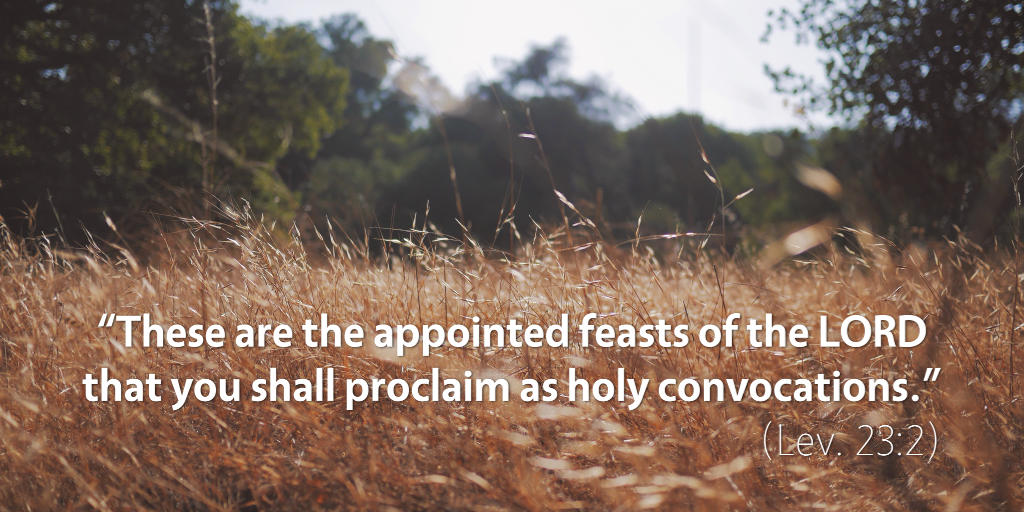Bible Readings for April 19th
Leviticus 23 | Psalm 30 | Ecclesiastes 6 | 2 Timothy 2
In Leviticus 23, Yahweh lays out the regular calendar of festivals for Israel. A large part of Israel’s worship was bound up in special feasts that Yahweh had commanded to commemorate something he had done in creation or in his work of redemption.
The first set of feasts began with the Passover, during which Israel remembered how Yahweh had brought Israel safely out of Egypt by passing over Israel to strike down every firstborn male in Egypt. The Passover was held on the fourteenth day of the first month, with the Feast of Unleavened Bread beginning the following day (Lev. 23:5–6). After remembering Yahweh’s redemption, Israel purified themselves by removing leaven from their homes (Ex. 12:19). Then, after the seventh day of the Feast of Unleavened Bread, Israel celebrated the Feast of Firstfruits by offering the first of their harvest to Yahweh to acknowledge God’s gracious provision (Lev. 23:9–14).
The second set of feasts was the Feast of Weeks. The Feast of Weeks also celebrated God’s provision for Israel, and Allen Ross helpfully explains how the Feast of Firstfruits and the Feast of Weeks were connected:
In the sequence of events, the first (barley) sheaf was brought to the sanctuary [for the Feast of Firstfruits] just after Passover. Forty-nine days later the last cereal crop (wheat) ripened. But now the Israelites had to bring loaves of bread made from wheat. This festival celebrated what the harvests produced, or more precisely what the LORD had produced for them.1
In the New Testament, we learn the full significance of these feasts. If the resurrection of Jesus made him the firstfruits of new creation after his crucifixion during Passover (1 Cor. 15:20), then the gift of the Holy Spirit became the final harvest of God’s grace at the Feast of Weeks—that is, the Feast of Pentecost (Acts 2). Also, we have received the “firstfruits” of the Spirit now while we await the redemption of our bodies at the harvest—that is, the return of Jesus (Rom. 8:23).
The third set of feasts began with the Feast of Trumpets on the first day of the seventh month (Lev. 23:24), with the Day of Atonement following on the tenth day of the seventh month (Lev. 23:27). Then, on the fifteen day of the seventh month, Israel lived in booths for seven days during the Feast of Booths to remember how they lived in the wilderness before entering the Promised Land (Lev. 23:34, 42–43).
Just as the Day of Atonement stood as a perpetual reminder of our need for atonement and cleansing from sin—pointing forward to Christ’s perfect atonement—the Feast of Booths reminds us that we are a pilgrim people, “sojourners and exiles” (1 Pet. 2:11), until Jesus returns, when the trumpet of God blasts and the Lord descends to bring his people home (1 Thess. 4:16).
1 Allen P. Ross, Holiness to the LORD: A Guide to the Exposition of the Book of Leviticus (Grand Rapids, MI: Baker Academic, 2002), 420.
Podcast: Play in new window | Download (5.3MB) | Embed
Subscribe: Apple Podcasts | RSS | More

Scripture quotations are from The Holy Bible, English Standard Version copyright © 2001 by Crossway Bibles, a division of Good News Publishers. Used by permission. All rights reserved.


